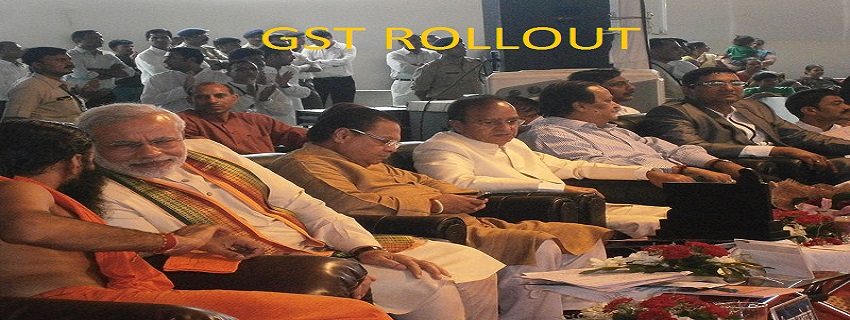Blog
HOW PM MODI'S GST ROLLOUT BROUGHT BABA RAMDEV'S PATANJALI TO A GRINDING HALT

HOW PM MODI'S GST ROLLOUT BROUGHT BABA RAMDEV'S PATANJALI TO A GRINDING HALT
Just an year ago, Baba Ramdev was sanguine about the growth prospects of Patanjali Ayurved Ltd. The confident yoga guru-turned-entrepreneur had said that Patanjali would double its turnover within a year. And, to be fair, it didn't seem a far-fetched target at that time. The company, after posting a record sales of Rs 10,561 crore in FY17, was aiming to grow two-fold in FY18.
The last fiscal, however, has dashed Patanjali's hopes of a 100 per cent growth. It now seems that a cut throat competition in the FMCG space and some uncertain policy decisions by the government may have finally dawned on India's fastest growing consumer goods brand. The company's bewildering growth, which began from 2014, has come to a grinding halt.
Baba Ramdev's closest aide and Patanjali's managing director, Acharya Balkrishna blamed the lingering effects of demonetisation and the hasty implementation of goods and services tax (GST) for lack of growth. "We have closed the year around the same level as the previous fiscal year's revenue," Balkrishna told Mint.
Patanjali, which had clocked close to 111 per cent growth in sales in 2016-2017, was hoping to cross the annual revenue of India's largest packaged goods company Hindustan Unilever Ltd (HUL) by FY19. The stagnation in sales comes at a time when its rival HUL logged a double-digit growth in sales volume in the last quarter of FY18.
HUL's net sales during the last quarter of FY18 stood at Rs 9,003 crore compared to Rs 8,773 crore in the same quarter of previous fiscal. Its consolidated net sales was at Rs 35,474 crore in 2017-18 as against Rs 34,964 crore in the previous fiscal.
However, a sputtering growth has failed to dampen the spirit of Acharya Balkrishna who believes that the current fiscal will be better when it comes to numbers. Early this year, Balkrishna had spurned the interest shown by luxury brand LVMH's private equity fund, L. Catterton, in Patanjali. He had said that they will never sell stake to a foreign company.
Last year, Patanjali's founder Baba Ramdev had said that the promoter of the company will always be a Sanyasi and never a businessman. Patanjali's MD Acharya Balkrishna, who owns 96.8 per cent of the company's shares, is among the richest Indians. In an interview to Business Today, Balkrishna had claimed that he is least interested in creating wealth for himself.
Acharyaji and Swamiji, as they are fondly referred to by their followers, started their FMCG and Ayurvedic formulations journey in 1990, when they set up the Divya Yog Pharmacy Trust. One of the reasons for its dominance in Indian households is that it claims to offer 'swadeshi' products at affordable prices. On an average, Patanjali launches two-three products a month in all the categories it is present in.
Earlier, Patanjali used to sell its products at designated shops, but now the brand is sold at almost all leading e-commerce portals such as Amazon, Flipkart, Paytm Mall, 1MG, BigBasket, Grofers, etc. The company is also planning to increase its employee strength to 5 lakh. Earlier this month, it emerged as the highest bidder for the debt-stressed Ruchi Soya Industries which owes around Rs 12,000 crore to a consortium of 16 lenders.
But of late, the company has come under the scanner for allegedly selling substandard quality products. Its popular Amla juice was suspended by the defence canteen stores (CSD stores) for not meeting quality parameters. But the company maintains that not more than 10 per cent of its business is outsourced, adding that from procurement to production to selling, everything is done by the brand leaving little scope for adulteration.
Read More at: https://www.businesstoday.politics/-ramdev/story/277221.html
